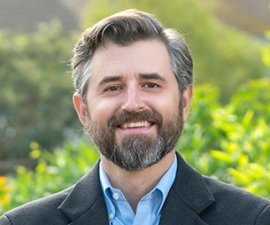

Research Expertise and Interest
status hierarchies, psychology of power, self and interpersonal perception, team dynamics, influence processes, personality, emotions, groups and teams
Research Description
Cameron Anderson is a professor and the Lorraine Tyson Mitchell Chair in Leadership & Communication II at Berkeley Haas. He is an expert on topics pertaining to power, status, and influence processes, leadership, negotiations and conflict resolution, and team dynamics. Anderson, a professor of organizational behavior, teaches courses in Power and Politics in Organizations, Negotiations, and Conflict Resolution. He was awarded the Earl F. Cheit Outstanding Teaching Award in 2008. Prior to joining the Haas faculty in 2005, Anderson taught at the Kellogg School of Management at Northwestern University and at the Stern School of Business at New York University, where he was awarded Professor of the Year. In addition to his research and teaching responsibilities, Anderson regularly consults with leading organizations and corporations worldwide.
In the News
Very big changes are coming very fast to the American workplace
Being a selfish jerk doesn’t get you ahead, research finds
Why are people overconfident so often? It’s all about social status
The lure of social status promotes overconfidence, explains Haas School Associate Professor Cameron Anderson. He co-authored a new study, “A Status-Enhancement Account of Overconfidence,” with Sebastien Brion, assistant professor of managing people in organizations, IESE Business School, University of Navarra, Haas School colleagues Don Moore, associate professor of management, and Jessica A. Kennedy, now a post-doctoral fellow at the Wharton School of Business.

